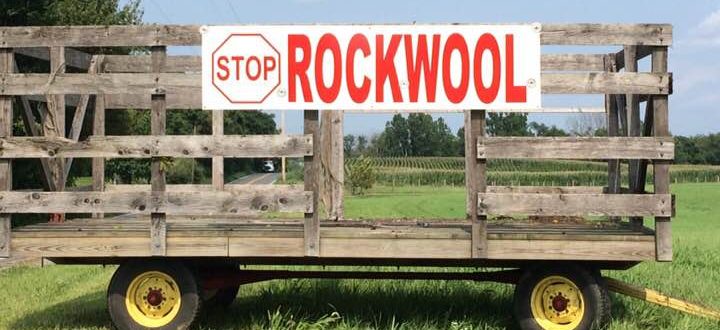Jens Birgersson, CEO of Rockwool, stated in an investor’s call this morning that their proposed West Virginia plant “… is moving ahead now. No obstacles to that.” Unfortunately, Birgersson neglected to inform the analysts on the call that funding for their sewer is still being litigated, and that their stormwater permits with the West Virginia Department of Environmental Protection have yet to be approved and face great public opposition. These are among the obstacles still standing in the way of Rockwool finishing their build.
One of the analysts asked a question about Rockwool’s proposed plant in France. Birgersson stated, “there’s a bit of a different approach here. We buy land and here we are just doing the permitting, eh, we do that homework so that we know that it’s possible, get ready, but we have not taken a decision yet to build the plant.” In other words, Rockwool acknowledges that they are taking a “different approach” in France where they are seeking their permits first before they invest a lot of money in construction. Instead of using this thoughtful approach here in West Virginia, Rockwool is seeking to use the amount of money they have invested thus far in construction as leverage to drive their still-unapproved permits through. Why? Is it because West Virginia seems to have more lax permitting processes? Is it because they get less pushback from state officials? Does this seem like the actions of a responsible corporate actor?
Birgersson also boasted about his company’s “good profitability.” Why, if this is the case, does this company need state-backed loans for this project? It sure seems eager to take advantage of certain public officials’ willingness to use our state’s coffers to its favor.
Don’t be fooled, Jefferson County. For a company that tries to portray itself as a good neighbor, Rockwool’s statements to its key constituency—its investors—shows that its primary motivation is profit at the expense of our environment and community. Their continued efforts to buy public favor in our community with small gifts for photo opportunities is really just about the photo op, not about the people this plant will affect.
Bottom line, in West Virginia the community’s opposition to this project is not retreating and it is having an impact. Just consider the impact that continued delays and added litigation and other expenses must be having—and will have–on Rockwool’s financials (its free cash flow was down 37 million euros from 3Q 2018 to 3Q 2019) and ultimately its reputation. There are plenty of ways we can still affect change, at the very least by insisting on modern protective technology and strict compliance with laws. We will continue to shine a light on the facts and to demand that our local and state representatives follow the law and represent the will of the people.

